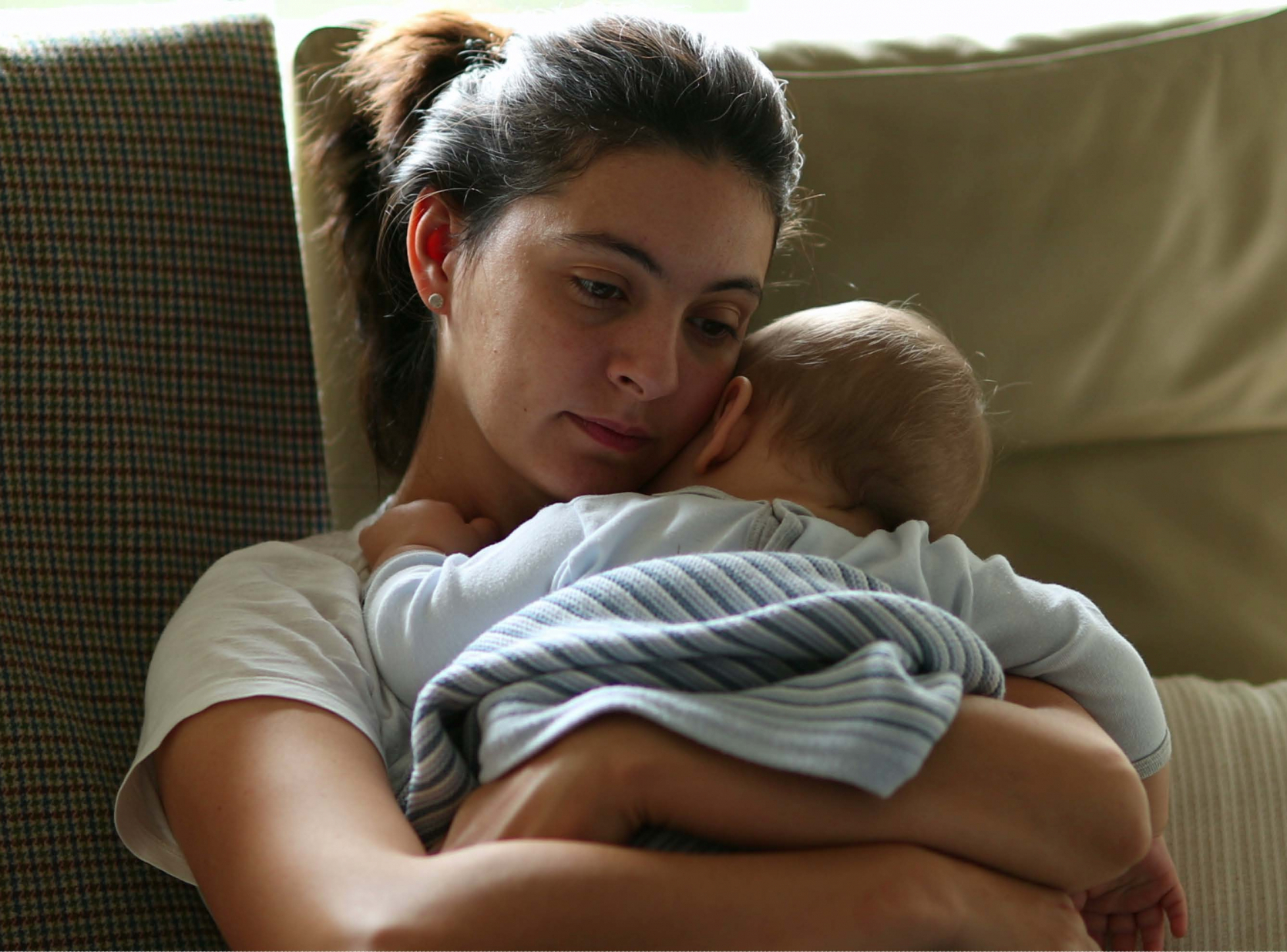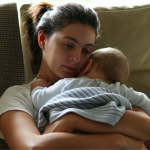Postpartum psychosis (PP) is a rare but serious psychiatric illness, occurring in 1 to 2 per 1000 women in the weeks following delivery. Postpartum psychosis is extraordinarily difficult to study. It is rare and rapidly evolving, so most of our data comes from retrospective reporting of cases. Despite recent advances in the field of reproductive psychiatry, our understanding of the etiology and long-term course of this most severe form of postpartum mental illness remains elusive. We are now in the midst of what we call our MGHP3 Study, the MGH Postpartum Psychosis Project. We are collecting clinical and demographic information, as well as genetic samples, from women who have experienced postpartum psychosis, in an effort to better understand the etiology of this illness.
The study is still in progress; however, our preliminary data clearly indicate there is great variation in how postpartum psychosis is treated. Misdiagnosis is common, and we lack clear guidelines regarding treatment. While there is data to indicate that we can prevent recurrent postpartum psychosis, these interventions to reduce risk of postpartum psychosis are seldom used.
What is the Long-Term Course of Postpartum Psychosis?
There is limited information regarding the longitudinal course of illness after the first episode of postpartum psychosis. Some women will go on to experience severe affective episodes outside the postpartum period; most of the women in this group have bipolar disorder. Other women have “isolated postpartum psychosis” and are vulnerable to affective illness and psychosis only during the postpartum period. When the first episode of psychiatric illness is postpartum psychosis, how do we advise women regarding their risk of future illness?
We have typically advised women that their risk of recurrent postpartum psychosis is very high after a subsequent pregnancy; however, relatively little is known about which women are at risk for recurrent illness outside of the postpartum period. Previous studies have suggested that certain factors may increase risk for non-postpartum recurrent illness: being single or unmarried, a personal or family history of psychiatric illness and older age. However, most studies examining recurrence risk have been small and retrospective.
Systematic Review and Meta-Analysis (Gilden 2020)
In a recent report, Gilden and colleagues published data from a meta-analysis of six studies, including a total of 645 patients with postpartum psychosis with follow-up periods ranging from 11 to 26 years.
Overall Risk of Recurrent Illness: This meta-analysis observed that about two-thirds of the women (64%, 412) women experienced recurrent illness during the follow-up period. On the other hand, about a third of the women (36.0%) with first-onset PP had no recurrence and remained in remission for the duration of follow-up (a mean of 16 years).
Risk of Recurrent Non-Puerperal Illness: The meta-analysis observed that 43.5% of the women had “isolated postpartum psychosis”. In other words, these women had episodes of mania, psychosis, or severe psychotic depression only during the postpartum period. The remaining 56.5% of the women had at least one subsequent episode of illness unrelated to childbearing. This and other studies suggest that the long-term pattern of illness in this group of women is most consistent with bipolar disorder. For these women, postpartum psychosis was the first episode of a psychiatric disorder with a longitudinal course and a broader window of recurrence vulnerability.
Risk of Illness Recurrence After Subsequent Pregnancy: For all of the included studies, information on subsequent pregnancies was available. Across the studies, 954 women were included, of whom 336 (35%) had a subsequent pregnancy. In this cohort of women with another pregnancy, 92 (27%) experienced a subsequent postpartum episode.
Prospective Follow-Up of Women with Postpartum Psychosis (Rommel 2021)
There is a single prospective, longitudinal study of women with first-onset postpartum psychosis (Rommel et al, 2021) which followed a cohort of 106 women after their first episode of postpartum psychosis and included follow-up over a four-year period.
Women with postpartum psychosis who were included in this study were treated with an algorithm using stepwise addition of benzodiazepines, antipsychotic agents, and lithium; treatment was continued for nine months and then medications were tapered. The participants were again evaluated after four years. Over the 4-year course of the study, about two-thirds of the women did not have any major psychiatric episodes outside of the postpartum period.
The risk of having a non-postpartum affective or psychotic episode was about 32%. The median time to recurrence in women with episodes outside of the postpartum period was 20.3 months. In this group of women with recurrent illness outside of the postpartum period, most transitioned to a diagnosis of bipolar disorder. None of the women met diagnostic criteria for schizophrenia or schizophreniform disorder.
One of the important goals of this study was to identify potential clinical markers which could be used to predict risk for affective or psychotic illness unrelated to the postpartum period. However, they found no clinical or demographic factors which predicted risk of recurrent illness outside of the postpartum period.
What Should We Tell Our Patients About Risk of Recurrence?
Although we have seen that women who experience postpartum psychosis receive a wide range of treatment recommendations, we most commonly consider postpartum psychosis to be an episode of bipolar disorder temporally linked to the postpartum period. This tendency stems from the finding that women with bipolar disorder are at higher risk of postpartum psychosis than women with other types of psychiatric illness, coupled with the finding that many women with PP go on to have recurrent illness outside of the postpartum period and have a course of illness most consistent with bipolar disorder. This approach serves us fairly well in the short run, as postpartum psychosis responds to antipsychotic agents and lithium; however, assuming that all women with PP have bipolar disorder may result in the recommendation of maintenance treatment with a mood stabilizer for some women who may not go on to have episodes unrelated to pregnancy.
The two studies presented here have yielded some surprising findings. First, looking at the prospective study of women with first onset postpartum psychosis, only about a third of the women ended up having episodes outside of the postpartum period. In the meta-analysis, which followed women for longer (11 to 26 years), the proportion of women who had at least one subsequent non-postpartum episode of illness was higher (56.5%). Nonetheless, both of these studies suggest that the proportion of women with bipolar disorder among those with first onset PP is lower than previously thought.
The second surprise is that in the meta-analysis, among women with PP who had another pregnancy, 92 (27%) experienced a subsequent postpartum episode. We have been taught that postpartum psychosis is highly recurrent; this number suggests that the risk might be much lower than previously thought.
While we may not be able to put a precise number to the risk of recurrent illness in women who have experienced postpartum psychosis, it is important to inform and educate women and their families that there is a risk of recurrence. Even if the risk of recurrence is low, recurrent illness is associated with significant morbidity and, especially when it occurs during the postpartum period, can put both the mother and child at risk.
Ruta Nonacs, MD PhD
Gilden J, Kamperman AM, Munk-Olsen T, Hoogendijk WJG, Kushner SA, Bergink V. Long-term outcomes of postpartum psychosis: a systematic review and meta-analysis. J Clin Psychiatry. 2020.
Kapfhammer HP, Reininghaus EZ, Fitz W, Lange P. Clinical course of Illness in women with early onset puerperal psychosis: a 12-year follow-up study. J Clin Psychiatry. 2014;75:1096–104.
Rommel AS, Molenaar NM, Gilden J, Kushner SA, Westerbeek NJ, Kamperman AM, Bergink V. Long-term outcome of postpartum psychosis: a prospective clinical cohort study in 106 women. Int J Bipolar Disord. 2021 Oct 28;9(1):31.






Leave A Comment